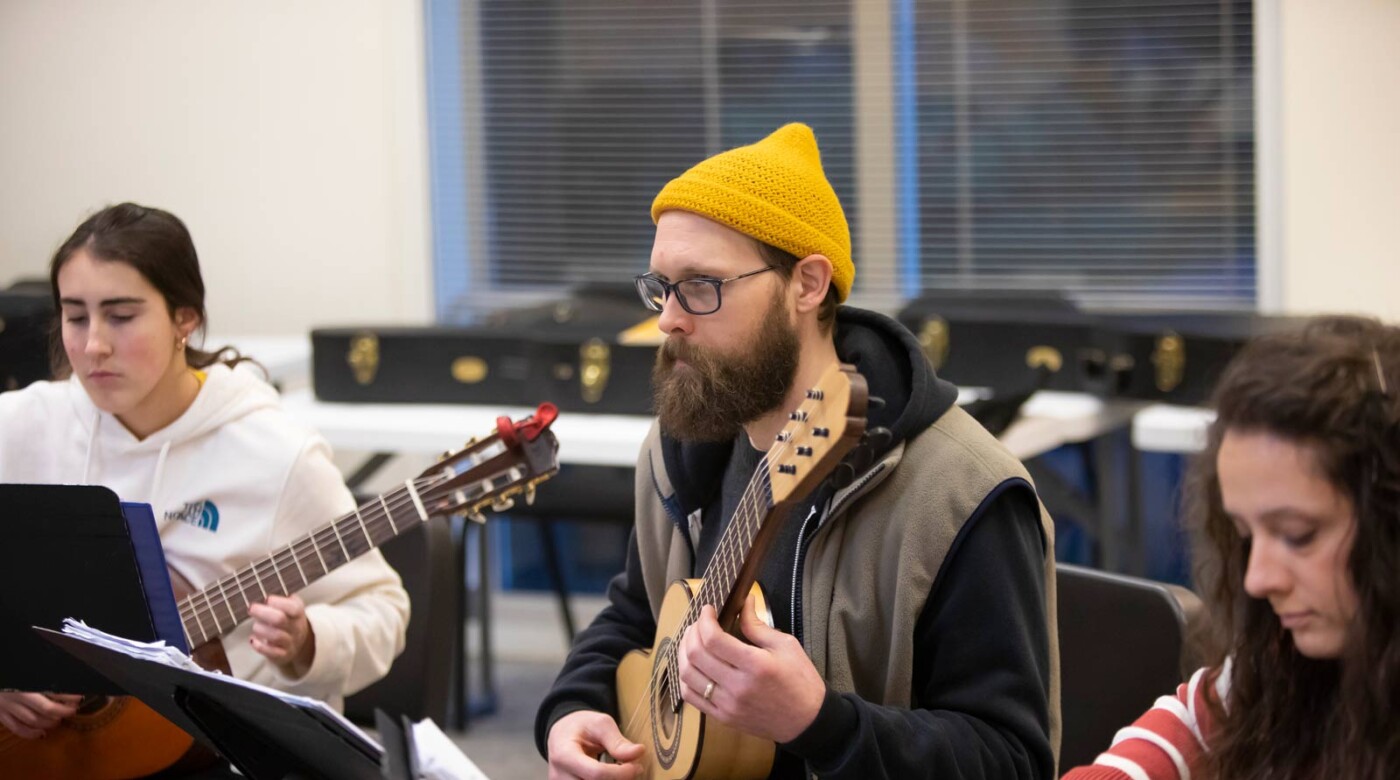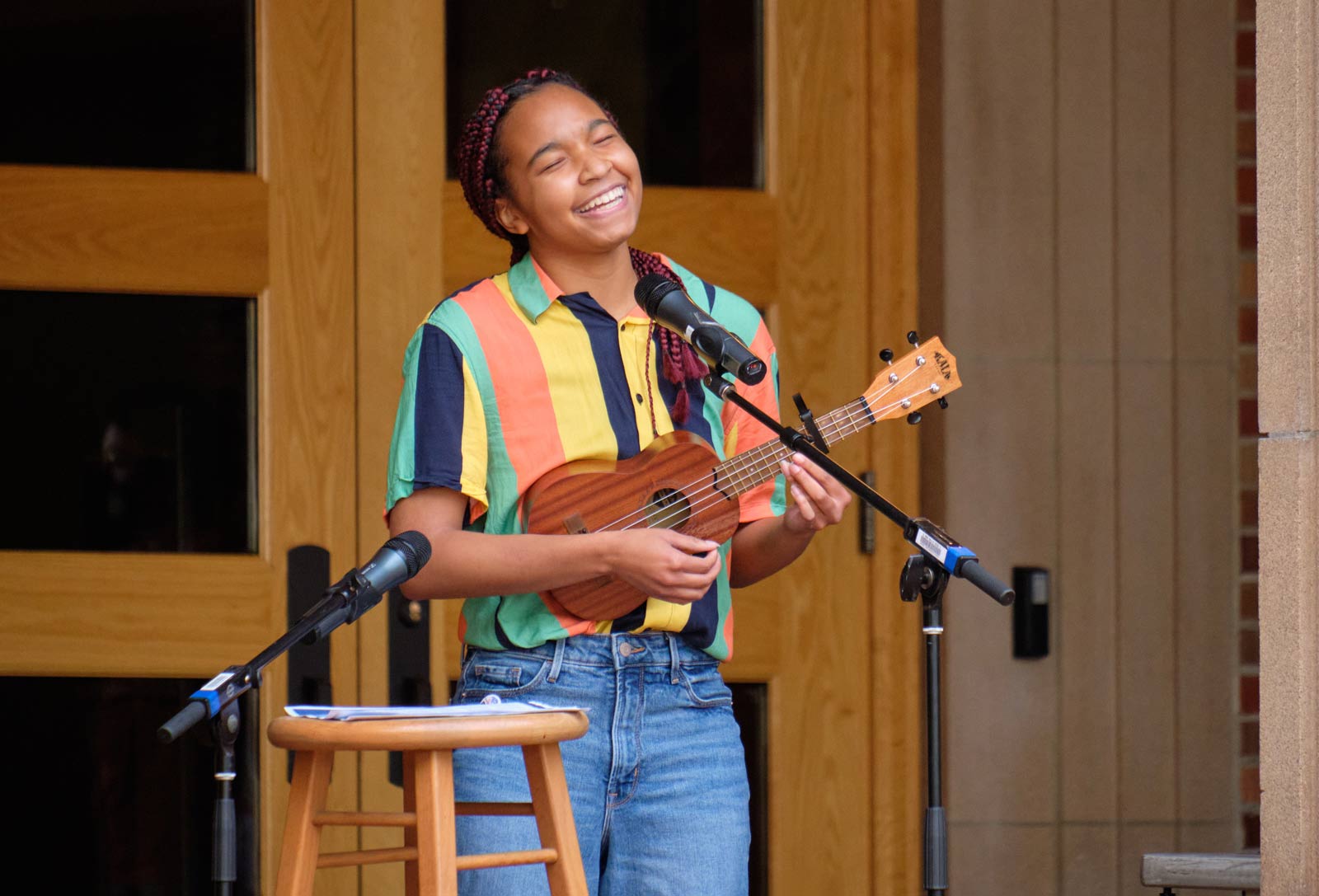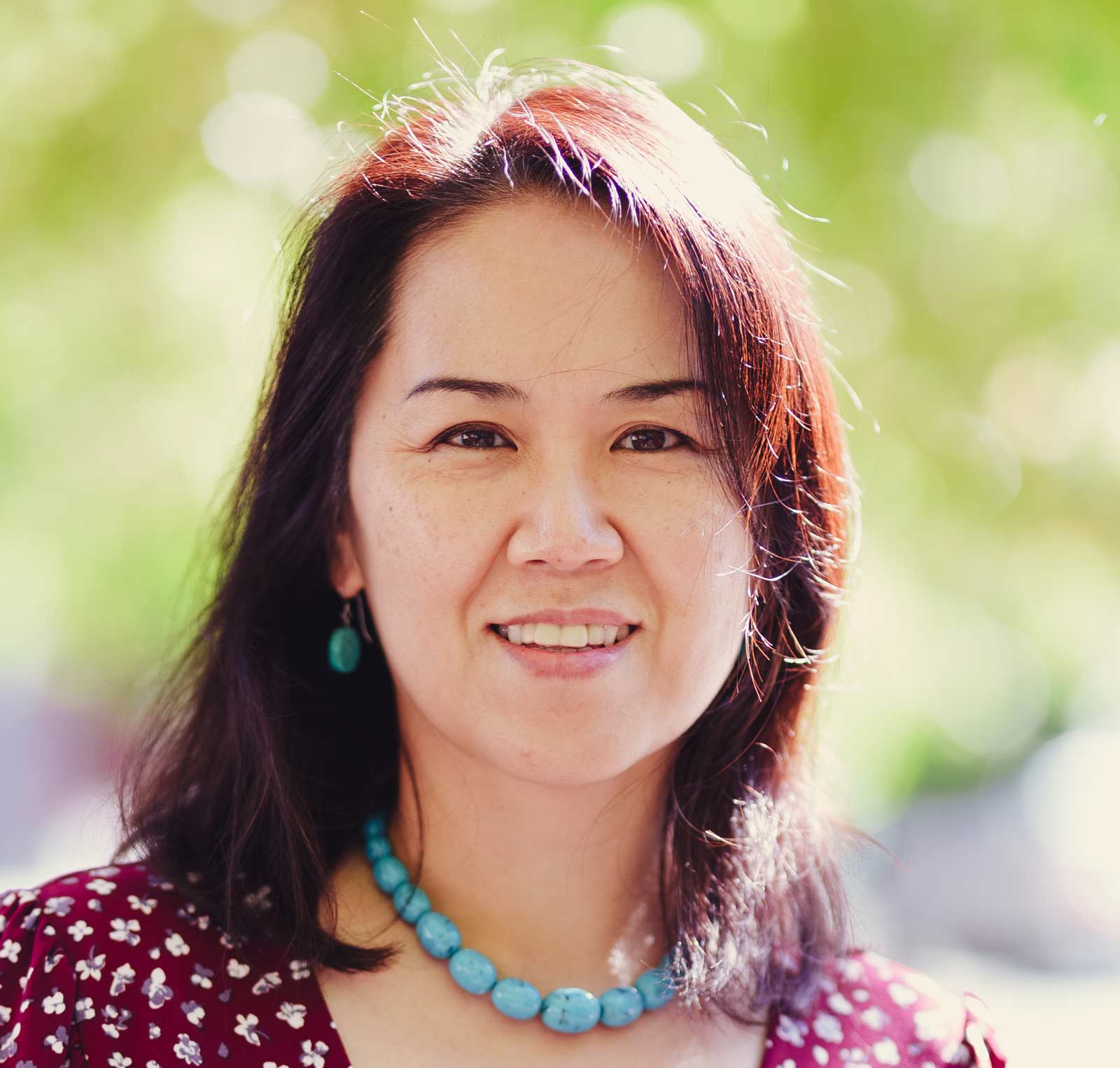PLU launches Music Therapy program as field gains tempo in Washington

By Britt Board
Assistant Director of Communications
Pacific Lutheran University is launching a new bachelor’s degree in music therapy, which will make PLU the only university in the state to offer an accredited academic pathway to licensure.
As of January 2025, music therapists in Washington are required to obtain a professional license to practice. The change marks a milestone for the field, aligning it with other allied health professions and ensuring higher standards of care.
Music therapy is an evidence-based healthcare profession that uses music to support physical, emotional, cognitive, and social well-being. In 2020 alone, nearly 2 million people in more than 36,000 facilities across the United States received music therapy services, underscoring the growing demand for trained professionals (American Music Therapy Association 2021 Workforce Analysis).
Where words fail, music speaks — reaching places in the brain and the heart that language may not reach.

“In clinical settings, this isn’t just poetic, it’s evidence-based,” says Megumi Azekawa, PLU’s new Director of Music Therapy.

Azekawa is a licensed and board-certified music therapist with a Master of Music in music therapy from Colorado State University and a Bachelor of Music in saxophone performance from the University of Washington. Her work bridges clinical research and policy advocacy, advancing equity-driven approaches in both music therapy and healthcare.
“Music therapy is an integration of art, science, and humanity,” says Azekawa. “This program helps students blend clinical knowledge with music-based therapeutic skills to support clients’ needs, including facilitating clients’ creative expressions to support their health and well-being.” What can graduates do with a music therapy degree? Board-certified music therapists work in hospitals, schools, mental health clinics, elder care, veterans’ services, and more.
Students in PLU’s program will study psychology, neuroscience, and music performance while gaining hands-on experience through clinical practica and a six-month internship.
Coursework will explore topics such as the relationship between music and mental health, music in medical settings, inclusive practices, and music processing in the brain. Students will also hone musical skills in voice, piano, and guitar — foundational instruments for therapeutic sessions.
The degree was designed with state licensure in mind, ensuring graduates are prepared to take the national board certification exam and meet Washington’s new requirements. Those requirements didn’t exist until recently — and Azekawa helped make this change happen.
As co-chair of the Washington State Music Therapy Task Force, she played a leading role in advocating for the 2023 legislation that created licensure for the field. “Meeting with legislators was not only educational and informative, but also an important step in advocating for our work and inviting continued collaboration,” she says. “As a transplant, music therapy gave me a community here. Now I’m grateful for the chance to give back.”
Azekawa brings extensive experience to her role, including work with neurodivergent children, veterans with PTSD, and people navigating grief, trauma, and neurological conditions. Her work shows how music offers solace, validation, and a space for what words cannot express in moments of deep vulnerability. “You might be the last person to play music for someone in hospice,” she says. “It’s a deeply humbling experience.”
As a transplant, music therapy gave me a community here. Now I’m grateful for the chance to give back.
With the program’s first cohort beginning in Fall 2025, Azekawa sees a natural fit between music therapy and PLU’s mission. “Service and purpose are anchors at PLU, and those values are essential in music therapy,” she says. “As music therapists, we are not performers, but facilitators who center the clients and their therapeutic needs. This program is about connection, creativity, and helping people thrive.”


